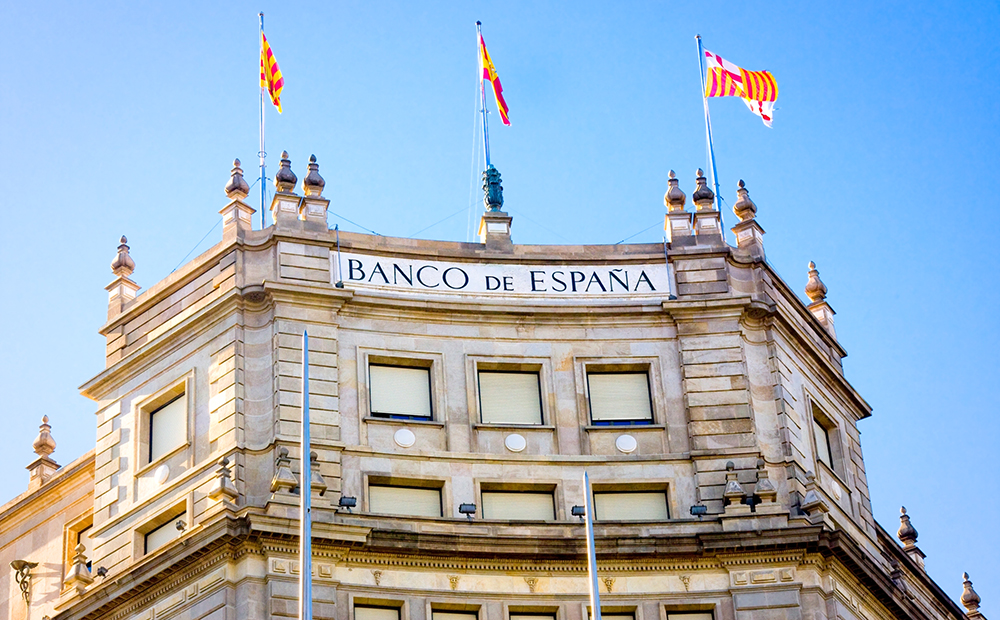How to get a Spanish mortgage as a foreign buyer
This article tells how to get a Spanish mortgage as a foreigner and explains what you can expect in terms of principal and interest rates. You will also learn about Spain’s new mortgage laws and why now is an excellent time to obtain a Spanish mortgage.

As a foreigner it is possible to get a Spanish mortgage if you follow our instructions.
Where should I start to get a Spanish mortgage?
First, ask the leading Spanish banks about mortgages for non-residents.
Next, we recommend speaking with a Spanish mortgage broker. Many people shy away from mortgage brokers because they don’t want to pay the additional fees. However, keep in mind that they have relationships with a myriad of Spanish lenders. This is important because the best options are often not the obvious ones. Moreover, many brokers specialize in working with foreigners. Thus they are often able to increase your chances of getting a Spanish mortgage. Brokers usually obtain favorable rates which can offset their fees.
Do the necessary administrative work
Obtain a Spanish NIE
A Spanish NIE (essentially a taxpayer ID number) is required to obtain a Spanish mortgage. If you don’t have one, we recommend applying for one right away as it can take a few weeks. For the most up to date information on how to obtain a Spanish NIE, read, “How to get your Spanish NIE in 5 easy steps.”
Check your credit rating
If you are going through a mortgage broker, check your credit history and make sure you have a rating better than “fair.” If your credit rating is not the best, take steps to improve it. Most people don’t realize how important it is to be proactive where their credit rating is concerned, and how much being assertive and good with paperwork can improve their rating.
Assemble paperwork that demonstrates your ability to pay your Spanish mortgage
It is important for the bank or mortgage broker to know your financial strength. We recommend providing as much information as possible to prove that you can, and will, pay back your loan. You need to assemble paperwork to demonstrate the following:
- Identity- Locate your passport and make copies.
- Proof of income- You need to demonstrate how much you earn. This includes income from your job plus any dividend and interest income that accrues from your financial assets. Adequate proof of earnings include tax declarations from the country in which you pay taxes and pay stubs. You should also include bank statements demonstrating interest and dividend income.
- Assets- Provide evidence of other properties you own, additional bank accounts in your name and any financial assets you own. Adequate proof includes property deeds, bank statements and statements from your investment advisor or asset manager.
Any other financial information that demonstrates you are a financially sound candidate is helpful. This includes profit and loss statements if you own a business, bank guarantees, etc.
If you are unsure of what documents the bank will accept, please schedule an appointment with us and we will answer any questions you may have.
Find a good lawyer
Hiring a lawyer, like using a mortgage broker, often seems like an added expense but it will save you a lot of money in the long run. Before you lock-in a mortgage, you need to make sure that the property is debt free, is actually owned by the person representing themselves as the owner, and other contingencies. To learn the other reasons you need a lawyer for your property purchase, we refer you to, “The best lawyer for your Madrid property purchase.”
Educate yourself about Spanish mortgages
Below is information about mortgage rates and fees as of June, 2019. We will continue to update this article to keep it abreast of legal changes to Spanish mortgage fees. For monthly information about Spanish mortgage rates, we refer you to our partner’s site Monthly Update: Spanish mortgage rates.
What is a good mortgage rate for a non-resident?
In July 2019, Spanish mortgage rates are at an all time low. The best non-resident mortgage rates available are:
- Variable rate: the absolute best you’ll get is EURIBOR + 1.5%. EURIBOR is the Central Bank of Europe’s rate. As of January 7, 2019, the twelve month EURIBOR rate is -0.217%. Click here for current EURIBOR rates– they change daily. The standard offering for non-residents is EURIBOR + 2%.
- Fixed rate: 2.5 -3.5%.
Given the current rate environment, we strongly recommend you get a fixed mortgage. Rates will eventually go up. Moreover, as the new mortgage laws stipulate, there is a floor of 0% set on variable mortgages (so banks don’t have to effectively pay you to borrow money their money). Thus a variable rate mortgage will only lead to higher future interest payments.
To get a top rate, you need to demonstrate two things:
- A high quality profile. Obviously, banks look for high income and low risk.
- A commitment to the bank. Contract other products to the bank such as home insurance (which you will need anyway) or a car loan. Make sure you send a minimum amount to your account monthly, pay your bills from that account, etc.
Remember, Spanish mortgage rates for non-residents are significantly higher than the standard resident mortgages you might see advertised because you represent more of a risk, from the bank’s point of view. This is because you are located abroad and the bank will have trouble recouping their losses if you default.

Although Spain has a strong banking system, it can be surprising difficult to find someone that will attend to you in English.
How much will they lend me?
In general, non-residents will get a maximum of 50% of the property price financed by a bank. This means you need to put down a minimum down payment of 50%.
What are the fees associated with a Spanish mortgage?
There are a number of fees associated with obtaining a Spanish mortgage. In the past, the borrower paid all of these fees. On June 17, 2019, Spain introduced long awaited changes to existing Spanish mortgage laws. This was done to bring them in-line with an EU Directive to provide increased consumer protection, post the 2008 financial crisis.
Under the new laws, the lenders pay most of the fees. The exceptions are the arrangement fee and valuation, which the borrower still pays.
Arrangement or Opening Fees
These are charged on every Spanish mortgage. They are not payable until the mortgage is granted and you start to draw on the funds. If you are granted a mortgage, but don’t avail yourself of it, you will not be charged this fee. Typically, arrangement fees are 1-2% of the gross loan amount. However, we here at Moving2Madrid are often able to achieve below that for our clients. The average for our clients is 1.5% and we have some with arragement fees as low as 1%.
Additional insurance
Most Spanish lenders require that you have both life insurance (in case you die this provides funds for the loan to be repaid) and property insurance. Prior to the new mortgage laws, banks used this as an opportunity to cross sell their mortgage clients insurance products by raising their interest rate if they went with third party insurance.
The new law states that banks can still require mortgage clients to have life and property insurance. However, they have to accept third party insurance and can no longer threaten to raise the interest rate on a client’s mortgage offer if they use an external vendor. They can offer a lower mortgage rate if someone buys their insurance, but it must be in a separate offer that the potential client can use to compare different insurance options.
Our advise is to shop for home and life insurance policies before you apply for your mortgage so you know what the rates are and can choose the option plans for you, not your bank.
Valuation fee
Before entering into a Spanish mortgage agreement, the property must be valued by a third party. Most banks offer very fair rates for this service. Going to the trouble of arranging your own valuation is typically not worth the effort. Valuation fees are usually around 0.1% of the value of the property.
Notary and land registration fees
Aside from the property purchase price and mortgage fees, there are additional fees that must be paid in taxes, to the notary and the Land Registry. These amount to roughly 10% of the purchase price. In the past, these were paid by the borrower. Now they are paid by the lenders.
To learn more specifics about Spanish mortgage fees, and to learn how to optimize them, read “How to optimize your Spanish mortgage fees.”
AJD (Actos Juridicos Documentados) or StampTax
In the past, borrowers had to pay this tax. It is up to 2.5% of the property price. It has been highly controversial for a number of reasons, largely because its calculation is very opaque.
The new mortgage laws pass payment of the AJD from borrowers to lenders. This is obviously very good news for borrowers.
Conclusion
With rates at an all time low, and new borrower friendly mortgage laws, now is an excellent time for foreigners to get a Spanish mortgage. Even if you can purchase a property outright, we still recommend getting a mortgage. Rates are so low that if you use a mortgage to buy a larger property than you can afford, or even buy a second property to rent, your return on the property will be more than enough to cover any additional mortgage expense. In short, if you borrow to fund your Madrid property purchase, you will ultimately increase your profit.
To get an up-to-date list of the best Spanish banks and mortgage brokers with which to work, contact us today at email@moving2madrid.com. We also give you contacts that speak English. This is important because most banks don’t answer emails. We did a test and sent ten emails in English, inquiring about non-resident mortgages. 80% of them did not receive a response. Morever, many bank branches don’t even know how non-resident mortgages work. But don’t worry- we’re here to help!
Posted on 2 February, 2021 by Pierre-Alban Waters in Mortgage - Mortgage - Invest - Buy, New? Start Here






[…] You can find more info on how to apply for mortgage as a non resident here. […]
[…] How to get a Spanish mortgage as a foreign buyer […]
[…] checklist of things you need to do before apartment shopping in Madrid. The Best Neighborhoods in Madrid How much does property refurbishment cost in Madrid? How to get a Spanish mortgage as a foreign buyer […]
[…] Spanish mortgages, we are in an interesting place right now. Spanish mortgages are approaching European levels, […]
[…] learning more about how people from other countries can get Spanish mortgages? If so, you can read: How to get a Spanish mortgage as a foreign buyer. Or, if you would like someone to explain the process to you, don’t hesitate to arrange a […]
[…] First, you need to figure out if you need to get a mortgage. If so, you need to decide if you want to apply for one in your home country, or if you want to get a Spanish mortgage. Spanish mortgage rates are currently at an all time low, and it is easier than most people think to get a Spanish mortgage as a foreign buyer. […]
[…] EURIBOR was in negative territory: it was -0.288%. It is so low that we are advising our clients to get a Spanish mortgage, even if they can afford to pay […]
[…] If you want to learn more about this, we invite you to read: How to get a Spanish mortgage as a foreign buyer. […]
[…] you get a Spanish mortgage to finance your property purchase, they will likely ask a third party to value the property. After […]
[…] The Spanish interest rate, which is set by the European Central Bank, is at an all time low: 0.0%. This makes getting a Spanish mortgage a very attractive option, which we believe will continue to support Spanish property prices. If you are interested in getting a Spanish mortgage, read How to get a Spanish mortgage as a foreign buyer. […]
[…] Please read this to learn more about the paperwork required to get a Spanish mortgage […]
[…] want a professional to make your move or property purchase easy, from helping obtain your NIE to learning how to get a mortgage in Spain, request a free relocation consultation […]